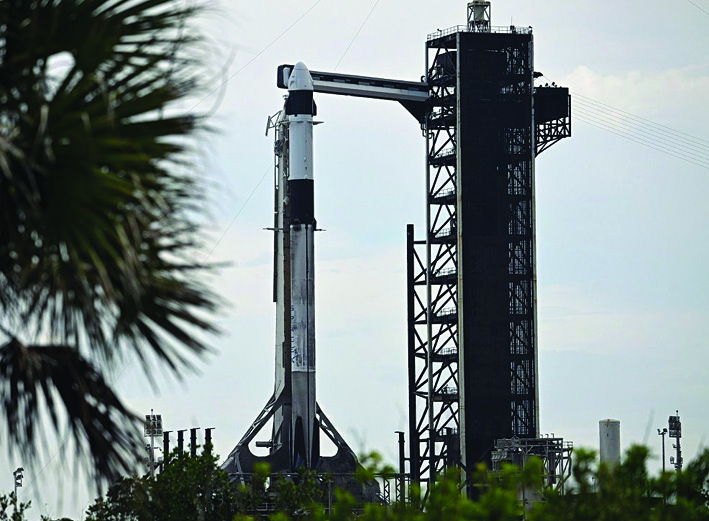
New Delhi: Hours before Indian astronaut Shubhanshu Shukla was planned to strap into the Dragon spacecraft for a historic launch to the International Space Station, the mission stands postponed with no next launch date. SpaceX announced on Wednesday, hours before the planned launch, that the teams require more time to repair the LOx (Liquid-oxygen) leak identified during post-static fire
The Ax-4 mission was initially planned to launch on May 29 but was delayed to June 8 and then to June 10. It was postponed to June 11 due to weather issues and high winds in the launch area. Liquid oxygen (LOX) is a supercooled form of oxygen, stored at -183C, and is used as an oxidizer in rockets like SpaceX’s Falcon 9.
Since space lacks atmospheric oxygen, rockets must carry their own oxidizer to burn fuel. Falcon 9 combines LOX with RP-1, a refined form of kerosene, to power its Merlin engines. When mixed and ignited, this combination produces the high-pressure thrust needed to lift the rocket into orbit.
LOX is highly reactive and supports rapid combustion, making it essential for efficient rocket propulsion. Any leak or malfunction involving LOX can seriously impact launch safety and timing.
SpaceX had noticed a leak from the booster during the static fire test that was conducted on June 9.
It is worth mentioning that the Falcon-9 being used to launch the newly developed Dragon spacecraft, had launched previously. SpaceX used the booster to launch a batch of Starlink satellites a few weeks back. Following its landing, it was refurbished and integrated with the Dragon spacecraft before moving to the launch pad at the Kennedy Space Centre in Florida.
SpaceX initially stated that they were installing a purge to fix the leak, but it appears that it did not work. Now, that the launch has been postponed, there are chances that SpaceX might need to remove the Falcon-9 entirely from the pad and get it horizontal to fix the issue. That would mean a bigger delay in the launch that could stretch into the next week.




